Interest Free Financing Up To 36 Months
WE DO NOT ONLY PUMP YOUR TANK - WE CLEAN IT!
Multiple Financing Options Are Available Up To 36 Months
Interest Free Financing Up To 36 Months
WE DO NOT ONLY PUMP YOUR TANK - WE CLEAN IT!
Multiple Financing Options Are Available Up To 36 Months
Locating your septic tank is not the most fun home improvement project, but you should know where your septic tank is, especially when you need septic tank pumping. After your septic tank has been installed, it will blend in with the rest of your property and be invisible. That’s why homeowners need to find out where their tank is located. Septic Blue of Raleigh can help locate the tank.
If you’re planning a septic system replacement, you need to know where your existing septic tank is. This location is crucial for several reasons, and you may need to adjust drainage lines or install them in a different place.
Contact your local health department and ask for public permit records. The number of permits issued will tell you how many homes are served by the same septic system, which makes it easier to locate each tank. Your building contractor may be able to provide information about your home’s original construction plans.
To locate your septic tank, contact your building contractor or home's construction documents to find out who installed it. If not possible, records at your town hall or city offices may contain information about who installed the system when it was built. Try contacting local officials and asking them for help locating the septic tank lid.
If the main sewer line is running through your yard, follow it until you reach an elbow joint or stop sign indicating where it connects with other lines to determine where your septic tank is located. Look for signs of concrete or other material that indicate a man-made structure beneath the ground's surface. Also, look for signs of vegetation dying around this area because it may indicate an underground structure is present due to poor drainage conditions caused by these structures blocking water flow from reaching plant roots below ground level.
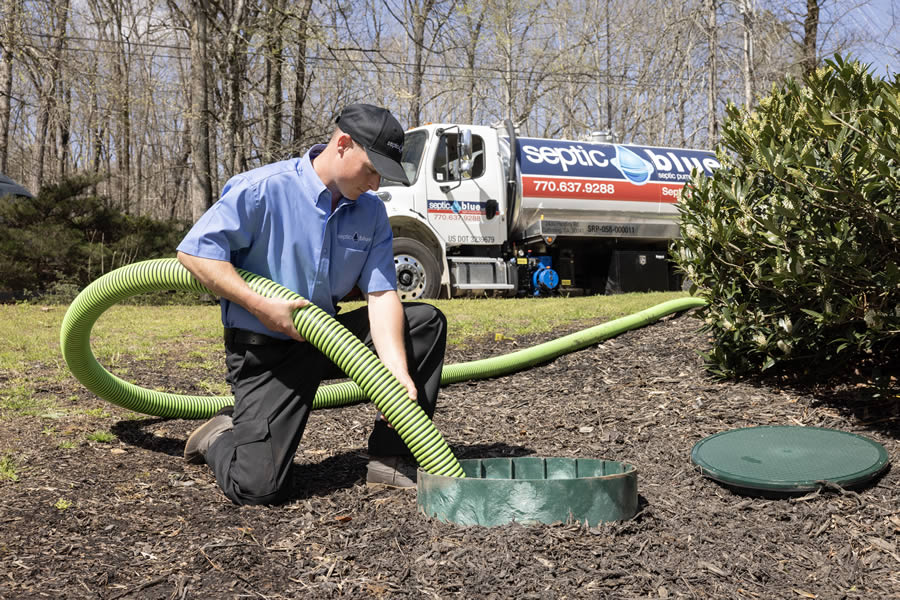
Septic tank pumping in Raleigh has never been so affordable and accessible thanks to the professionals at Septic Blue. We are…
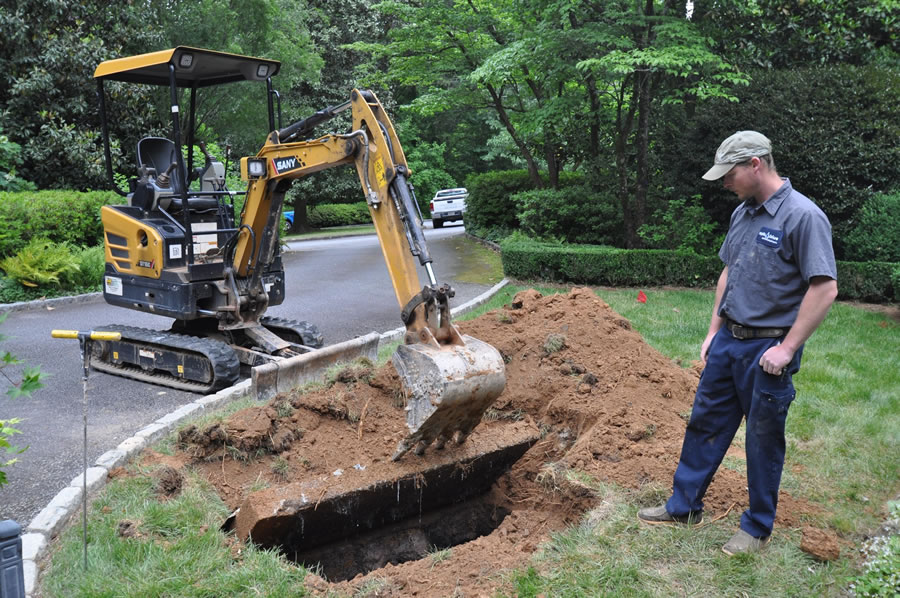
One quarter of Americans rely on septic tanks to process household waste. Most Septic Blue locations have septic tank experts who…
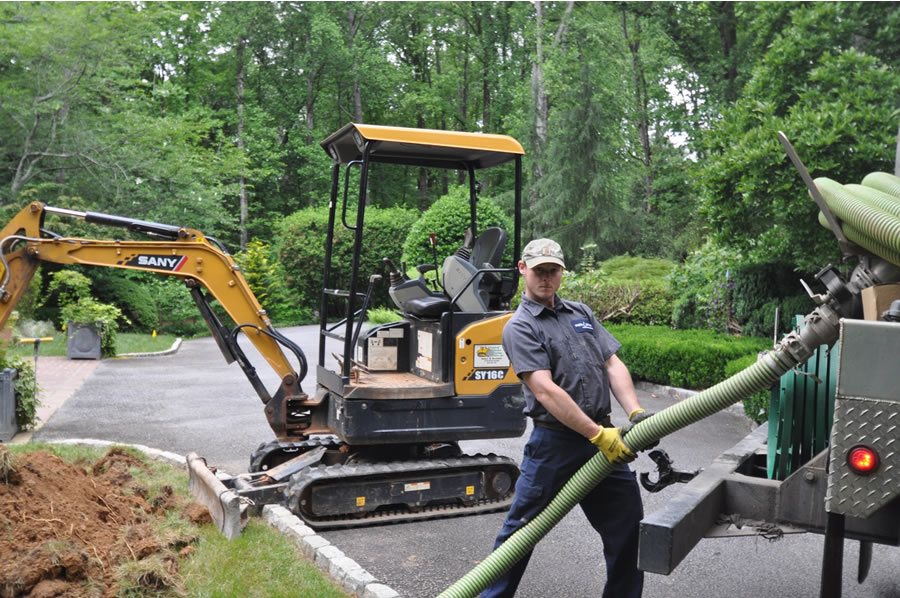
Call Septic Blue today for a second opinion. If you choose to go with Septic Blue, you'll receive $250 off your…
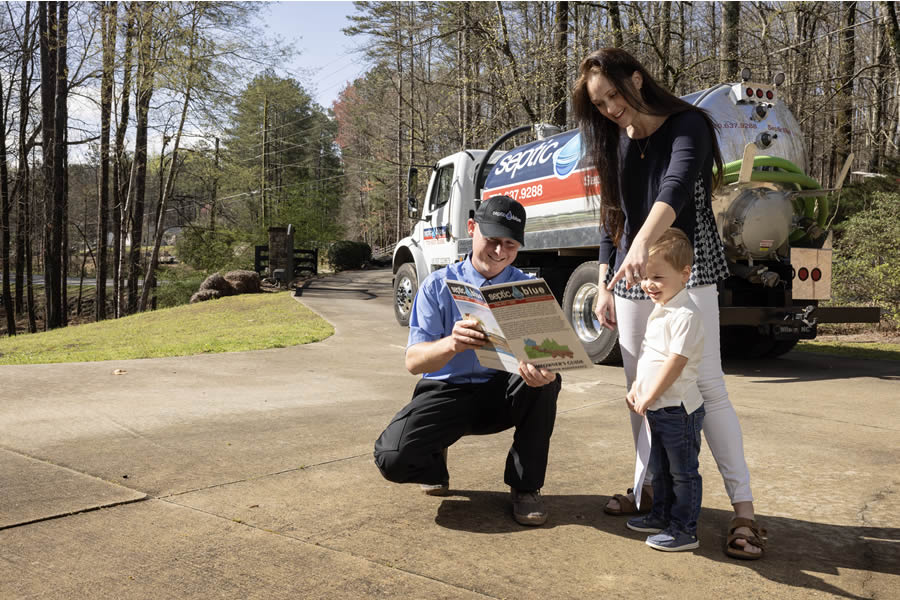
If you are a homeowner or resident in Raleigh that is among the 20 percent of households in the U.S. with…
Professional Saptic Plumbing solutions for every need. Contact Us Today!
Use a metal probe to locate the main sewer line and follow it until you reach the main pipe leading into the ground. Depending on how many homes are connected to this particular sewer line, this may take time and effort.
Inspect the yard where you think the septic tank lid should be located. Look for depressions in grass or dirt dug up recently (within a few weeks). Also, look for small piles of rocks or dirt that might have been used to cover an opening after digging was completed (this usually happens when someone is building a new home).
You can also use an electronic locating device to find the exact location of your septic tank lid. These devices use sonar technology that sends sound waves that bounce off solid objects in their path, such as a concrete septic tank lid, and returns information about its location.
Septic tank location is vital because a mistake can result in costly septic tank repair. Septic Blue of Raleigh will locate your tank successfully if you are unable to do so, allowing you peace of mind.
If you can’t locate your septic tank and don’t know anyone who can help, contact a professional plumber like Septic Blue of Raleigh, who can inspect and find your septic tank. We will also be able to determine if there are any leaks in your system so that they can make repairs as needed to keep it functioning properly for years to come!
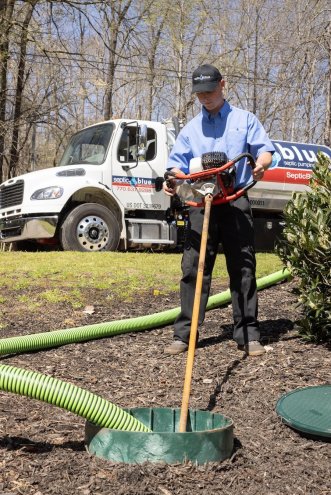
Your septic system plays a critical role in managing wastewater safely and efficiently, protecting both your home and the surrounding environment.…
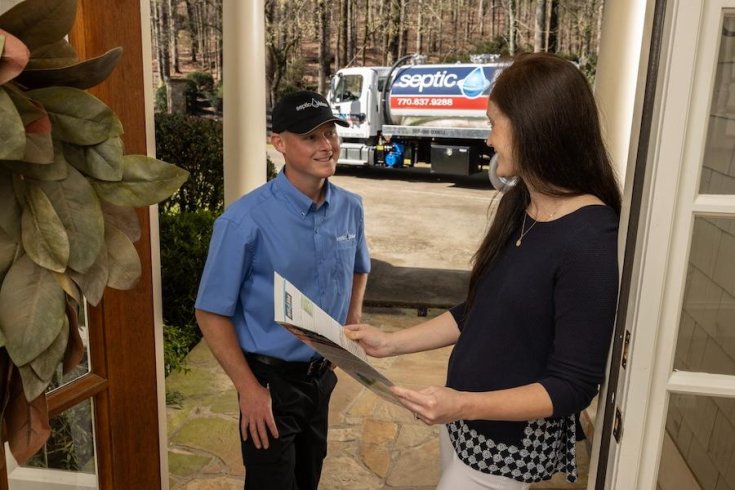
Hiring a septic company in Raleigh, NC involves more than comparing prices or scheduling the earliest appointment. Septic pumping, cleaning,…
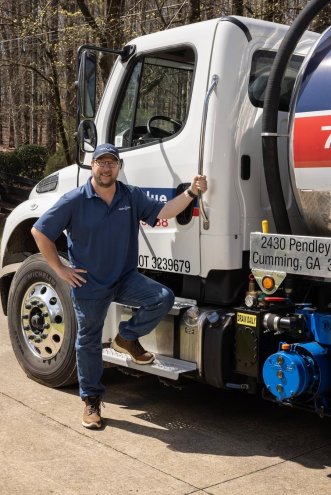
A septic system is designed to move wastewater efficiently from your home into a tank and then into the drain field.…
.webp)
Even if it often fades into the background of daily life, a septic system plays a critical role in keeping your…